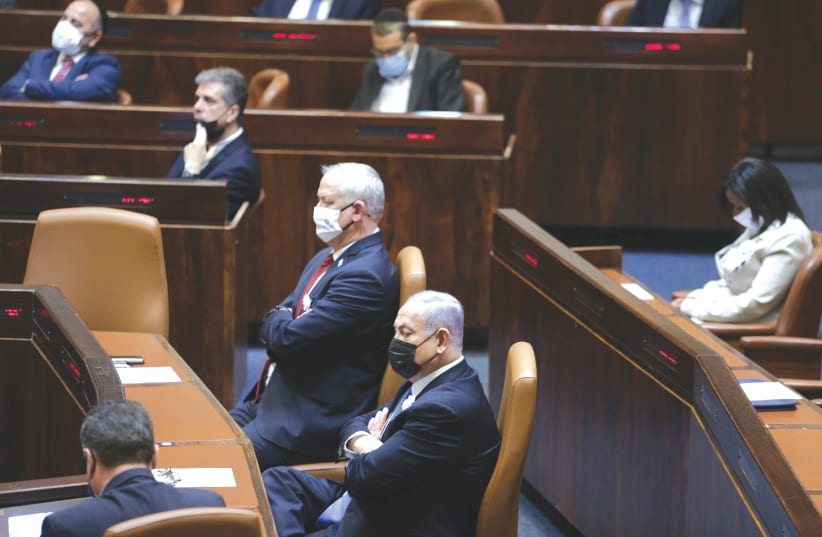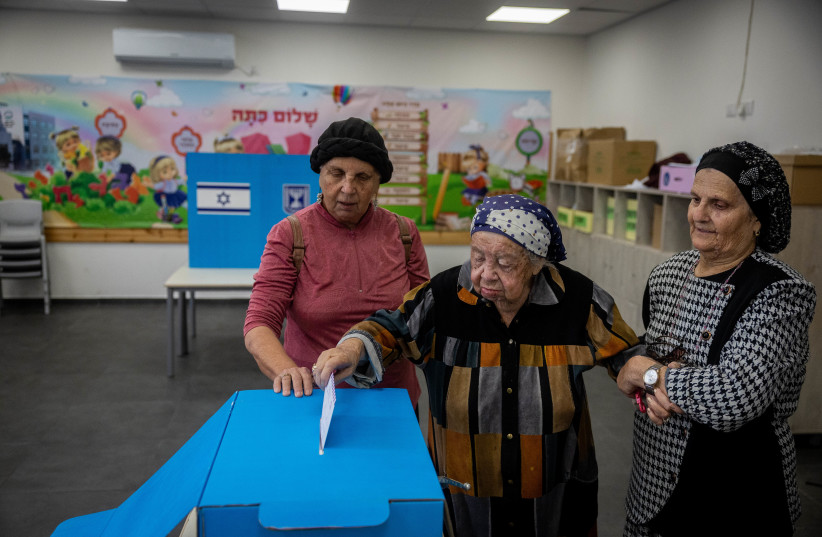A new poll published Thursday found that both the coalition and the opposition would be unable to form a majority government if elections were held today.
According to the poll, conducted by Panels Politics for Maariv, both the National Unity Party and the Likud would earn 27 seats each, while Yesh Atid would earn 18 seats, Shas would earn nine seats, United Torah Judaism would earn seven seats and the Religious Zionist Party, Hadash-Ta'al and Yisrael Beytenu would earn six seats each.
Meanwhile, Otzma Yehudit and Meretz would earn five seats each and Ra'am would earn four seats.
The National Unity Party fell by one seat compared to the last poll, while the Likud and Yesh Atid both rose by two seats. The rest of the parties either remained the same or moved up or down by one seat.
The current coalition would be left with 54 seats, while the former government which now sits in the opposition would earn 60 seats, meaning neither side would be able to form a majority government. Hadash-Ta'al traditionally does not join coalitions and is usually counted as its own bloc along with Balad, although Balad is not projected to cross the electoral threshold.
Over half of Israelis believe the state budget is mainly for coalition constituents
The poll additionally asked respondents if they thought the new state budget passed on Wednesday serves all the citizens of Israel or just the constituents of the coalition, with over half (53%) of the respondents saying that the budget served mainly the constituents of the coalition and less than a third saying it served all Israeli citizens. 18% said they were unsure.
Among respondents who voted for the coalition, 58% said the budget served all citizens of Israel, while among respondents who voted for the opposition only 4% agreed.
When split based on religiosity, 71% of haredi respondents and 43% of religious respondents said they believe that the budget serves all citizens of Israel. Meanwhile, only 27% of Masorti (traditional) and 18% of secular respondents agreed.
The poll was carried out on a representative sample of the Israeli population over the age of 18 consisting of 531 respondents.

